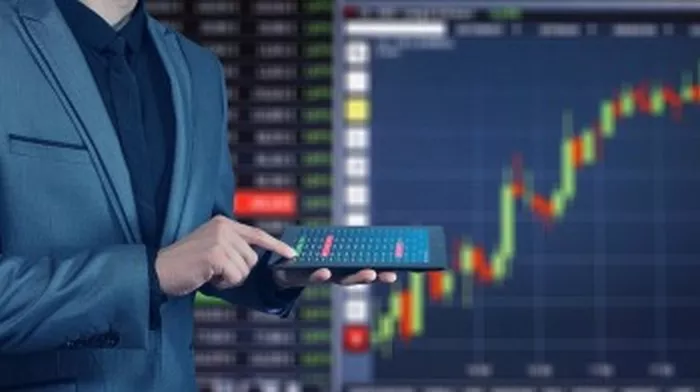Futures trading is a complex yet lucrative field that involves buying and selling futures contracts on various underlying assets like commodities, indices, and currencies. Interactive Brokers (IBKR) is a prominent brokerage firm known for its robust trading platform, low-cost structure, and advanced trading tools. For traders looking to engage in futures trading, IBKR provides a comprehensive platform that supports a wide range of futures contracts. This guide will walk you through the essentials of trading futures on IBKR, from setting up an account to executing trades and managing your portfolio.
1. Understanding Futures Contracts
Before diving into the specifics of trading futures on IBKR, it’s crucial to understand what a futures contract is. A futures contract is a standardized legal agreement to buy or sell an asset at a predetermined price on a specified future date. Futures contracts are used for various purposes, including hedging against price changes and speculating on price movements.
Key Elements of Futures Contracts:
Underlying Asset: The asset on which the futures contract is based (e.g., crude oil, gold, S&P 500 index).
Contract Size: The quantity of the underlying asset covered by the contract.
Expiration Date: The date on which the contract must be settled.
Settlement: Futures contracts can be settled either by physical delivery of the asset or by cash settlement.
2. Opening an IBKR Account
To start trading futures on IBKR, you need to open an account with the brokerage. Follow these steps to set up your IBKR account:
Step 1: Application Process
Visit the IBKR Website: Go to the Interactive Brokers website and navigate to the account application section.
Fill Out the Application Form: Provide your personal details, financial information, and trading experience. Ensure that you select the option for futures trading.
Submit Documentation: Upload necessary documents for identity verification and financial assessment.
Step 2: Account Approval
Verification: IBKR will review your application and documents. The approval process usually takes a few business days.
Account Funding: Once approved, deposit funds into your IBKR account. You will need sufficient capital to cover margin requirements for futures trading.
3. Getting Started with Futures Trading
After your account is set up and funded, you can begin trading futures. Here’s how to get started:
Step 1: Access the Trading Platform
Log In to IBKR: Use your credentials to access the IBKR trading platform.
Platform Overview: Familiarize yourself with the trading interface, including the order entry system, charts, and market data.
Step 2: Set Up Your Workspace
Configure Your Dashboard: Customize your dashboard to display relevant information such as market prices, charts, and order book.
Add Futures Contracts: Search for the futures contracts you’re interested in trading and add them to your watchlist.
Step 3: Analyze the Market
Technical Analysis: Use technical analysis tools like charts and indicators to assess market trends and identify trading opportunities.
Fundamental Analysis: Stay informed about economic reports, news, and events that may impact the futures markets.
4. Placing Futures Trades
To execute a futures trade on IBKR, follow these steps:
Step 1: Choose a Futures Contract
Select the Contract: Based on your analysis, choose the futures contract you want to trade. Ensure it matches your trading strategy and risk tolerance.
Step 2: Enter Order Details
Order Type: Decide on the type of order you want to place (e.g., market order, limit order, stop order).
Quantity: Specify the number of contracts you wish to buy or sell.
Price: For limit orders, enter the price at which you want to execute the trade.
Step 3: Review and Confirm
Order Review: Check all order details, including the contract, quantity, and price.
Confirm Trade: Once you’re satisfied with the order, submit it for execution. You’ll receive a confirmation once the order is filled.
See Also: Which Futures Are Best to Buy?
5. Managing Your Futures Positions
Effective position management is crucial for successful futures trading. Here’s how to manage your positions on IBKR:
Step 1: Monitor Your Positions
Track Performance: Use the IBKR platform to monitor your open positions, including profit and loss.
Adjust Orders: Modify or cancel orders as needed based on market conditions and your trading strategy.
Step 2: Implement Risk Management Strategies
Set Stop-Loss Orders: Protect your capital by setting stop-loss orders to limit potential losses.
Use Margin Wisely: Be mindful of margin requirements and avoid over-leveraging your positions.
Step 3: Close Positions
Exit Strategy: Determine when to close your positions based on your trading goals and market conditions.
Execute Close Orders: Place orders to close your positions, either partially or fully, and review the final results.
6. Advanced Futures Trading Techniques
For experienced traders looking to enhance their futures trading strategies, consider these advanced techniques:
Step 1: Spread Trading
Concept: Spread trading involves buying and selling related futures contracts to profit from the price difference between them.
Types of Spreads: Common spreads include calendar spreads, inter-commodity spreads, and intra-commodity spreads.
Step 2: Arbitrage
Definition: Arbitrage involves exploiting price discrepancies between related markets or contracts to achieve risk-free profits.
Execution: Identify arbitrage opportunities and execute trades simultaneously to capture the price differential.
Step 3: Algorithmic Trading
Automated Strategies: Utilize algorithmic trading strategies to execute trades based on predefined criteria and algorithms.
Benefits: Algorithmic trading can enhance execution speed, reduce human error, and implement complex trading strategies.
Conclusion
Trading futures on IBKR offers a wealth of opportunities for both novice and experienced traders. By understanding the fundamentals of futures contracts, setting up and managing your IBKR account, and utilizing the advanced trading tools and techniques available, you can navigate the complexities of futures trading and potentially achieve your financial goals. Remember to continually educate yourself, practice sound risk management, and stay updated on market conditions to enhance your trading success.


